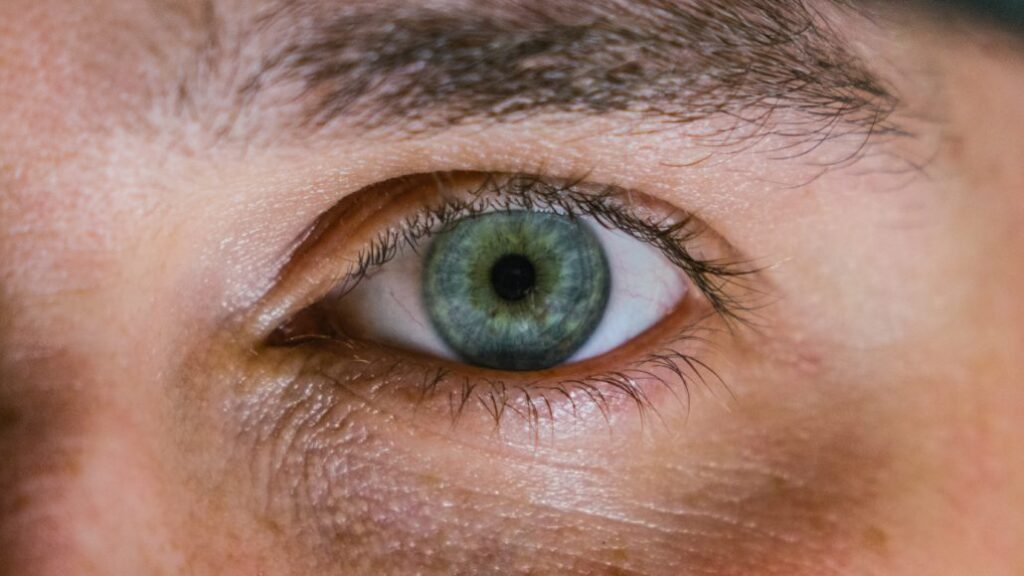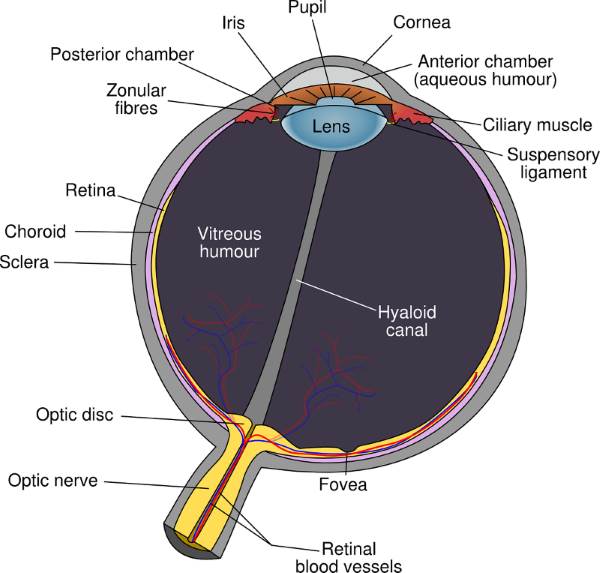This part of the eye can change dramatically with different emotions, light, and even by what you have ingested. What am I talking about? The pupil! Ever noticed how pupils change? Or thought why do pupils change size? This week’s article is all about this fascinating topic. Read on to learn more about this part of the eye, and even a little bit about human psychology.
“Are you high, your pupils look really dilated?”
Our pupils are quite simply amazing. They don’t just change when affected by light, but they also can change when someone is feeling happy, sad, angry. Perhaps a reason why Hollywood movies use a shot of the pupil to convey emotion!
You have probably heard this before: “Are you high, your pupils look really dilated?” Yes, they also change with the use of certain drugs. To understand this awesome phenomenon we must first understand where the pupil is actually located and it’s purpose!
Where Is The Pupil Located & What Is Its Purpose?
The pupil is located in the center of the iris. To be more exact, it is a hole located in the center of the iris. Its primary job is to regulate how much (or how little) light enters the eyes. This is done through muscles in the iris, which will constrict or enlarge the pupil. Nerve impulses travel down the optic nerve after light enters the eye, which affects the size of the pupil. The pupil changes involuntarily. It is known as the pupil reflex.
Why Does Your Pupil Change Size?
One instance when the pupil size changes as mentioned earlier is due to the level of light. In brighter surroundings, the pupil will constrict. In dimmer settings, the pupil will enlarge. The eye only takes in as much light as needed to see clearly. In different emotional states, the pupil is also affected. An article published in Scientific America explains how cognitive difficulty too affects the pupil.
“When he instructed subjects to remember and recite a series of seven digits, their pupils grew steadily as the numbers were presented one by one and shrunk steadily as they unloaded the digits from memory.”
The emotional, mental, and physiological state of one’s mind can all influence the size of our pupils. Perhaps our eyes are really the windows to our souls!
How & Why Are Eyes Dilated By Your Eye Doctor?
You might have had your eyes dilated by an optometrist during your regular eye exam. Dilating eye drops consists of a medication that relaxes the muscles in the iris that are responsible for constricting the pupils. Eyes are dilated so the back of the eye can be examined more clearly. You likely have felt some stinging when the drops were first put into the eye, but this usually subsides fairly quickly. I would recommend having a numbing eye drop be put in first if you would like to reduce any pain associated with dilation drops.
The effects of dilation usually wear off after about 3-4 hours. Those who have darker-coloured eyes will see the effects subside quicker than those with lighter colour eyes. This is because darker coloured eyes absorb less of the medication.
We hope you enjoyed this week’s blog post by Dr. Sharma! Don’t forget to stay on top of your regular comprehensive exams, which can be easily booked through calling us, or booking online.

